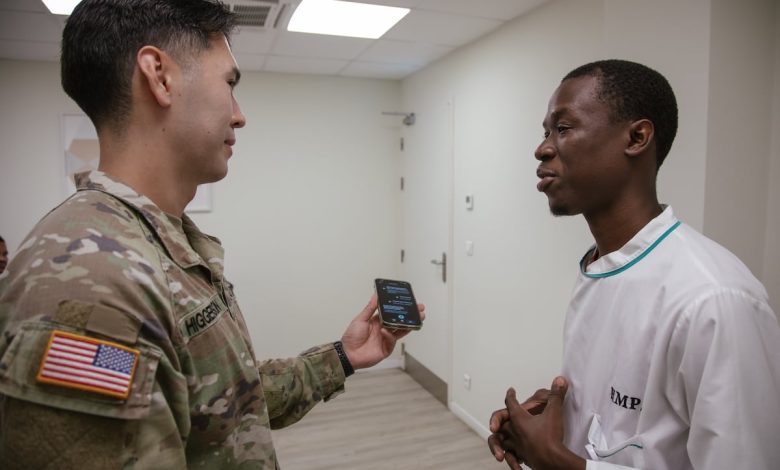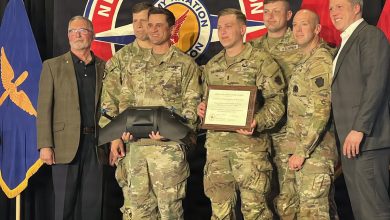Soldiers stress-test translator tech to bridge allied language gaps

Army medical and public affairs personnel on a recent week-long exchange with Angolan service members set out to bridge one rather significant gap capable of making or breaking operations between allied nations: language.
Part of the exchange, which matched up troops from U.S. Army Southern European Task Force, Africa, with personnel from the Angolan Military Health Division, sought to identify emerging, scalable tech capable of real-time language translation in what could one day be high-stress environments in which interpreters are not readily available.
As select personnel in the exchange trained on an array of medical procedures, others, like 1st Lt. Tucker Chase, a PAO assigned to SETAF-AF, worked on translations between U.S. personnel and their allies from Angola, a Portuguese-speaking nation in southern Africa that also boasts more than 40 local languages.
“Translation tools like these help us engage more directly with our counterparts and ensure their voices are accurately represented,” Chase said in a service press release. “We’re always looking for ways to improve how we tell the story of our missions.”
And improvements were indeed established. By the end of the exchange, which was conducted over the last week of September, soldiers had zeroed in on at least one translator app capable of processing smooth conversation by way of side-by-side — or face-to-face — displays without needing to hand the phone back and forth, according to the release.
Thanks to the technology’s hands-free, auto-translate function, communication between the allied partners continued to flow without interruption, the release said.
While not necessarily replacing human interpreters, that capability could prove vital in overcoming language barriers in the midst of what could be life-or-death situations.
“I would pull out my phone and open the app,” 1st Lt. Matthew Higgerson, a perioperative nurse with Landstuhl Regional Medical Center, said in the release. “We’d basically just talk regularly as if we’re having a conversation, then give each other time to read what was translated and continue talking.”
In another portion of the exchange, which was hosted on site in Angola’s capital city of Luanda, personnel were able to employ the translator tool during a joint medical press conference conducted by both nations.
Chase noted that the tech proved its value during that exercise, as well.
“It’s a practical solution when resources are limited,” he said. “It’s intuitive, fast and helps us maintain the authenticity of our engagements.”
Though it was brief, the exchange program marked one small part of an ongoing effort by SETAF-AF to stress-test military technology across the continent’s 54 sovereign nations, much of which is aimed assisting humanitarian emergencies.
J.D. Simkins is the executive editor of Military Times and Defense News, and a Marine Corps veteran of the Iraq War.







